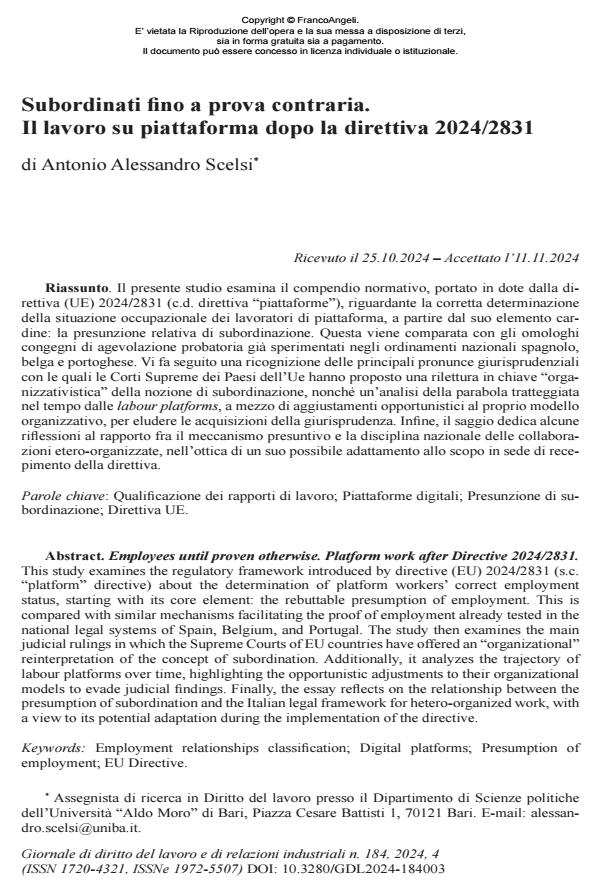Employees until proven otherwise. Platform work after Directive 2024/2831
Journal title GIORNALE DI DIRITTO DEL LAVORO E DI RELAZIONI INDUSTRIALI
Author/s Antonio Alessandro Scelsi
Publishing Year 2025 Issue 2024/184
Language Italian Pages 34 P. 495-528 File size 789 KB
DOI 10.3280/GDL2024-184003
DOI is like a bar code for intellectual property: to have more infomation
click here
Below, you can see the article first page
If you want to buy this article in PDF format, you can do it, following the instructions to buy download credits

FrancoAngeli is member of Publishers International Linking Association, Inc (PILA), a not-for-profit association which run the CrossRef service enabling links to and from online scholarly content.
This study examines the regulatory framework introduced by directive (EU) 2024/2831 (s.c. “platform” directive) about the determination of platform workers’ correct employment status, starting with its core element: the rebuttable presumption of employment. This is compared with similar mechanisms facilitating the proof of employment already tested in the national legal systems of Spain, Belgium, and Portugal. The study then examines the main judicial rulings in which the Supreme Courts of EU countries have offered an “organizational” reinterpretation of the concept of subordination. Additionally, it analyzes the trajectory of labour platforms over time, highlighting the opportunistic adjustments to their organizational models to evade judicial findings. Finally, the essay reflects on the relationship between the presumption of subordination and the Italian legal framework for hetero-organized work, with a view to its potential adaptation during the implementation of the directive.
Keywords: Employment relationships classification; Digital platforms; Presumption of employment; EU Directive.
Antonio Alessandro Scelsi, Subordinati fino a prova contraria. Il lavoro su piattaforma dopo la direttiva 2024/2831 in "GIORNALE DI DIRITTO DEL LAVORO E DI RELAZIONI INDUSTRIALI " 184/2024, pp 495-528, DOI: 10.3280/GDL2024-184003